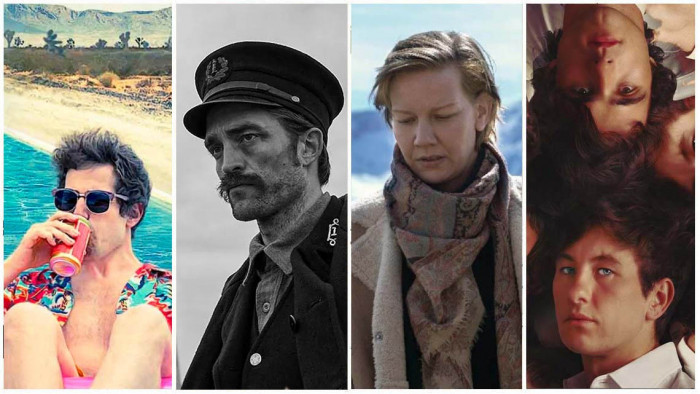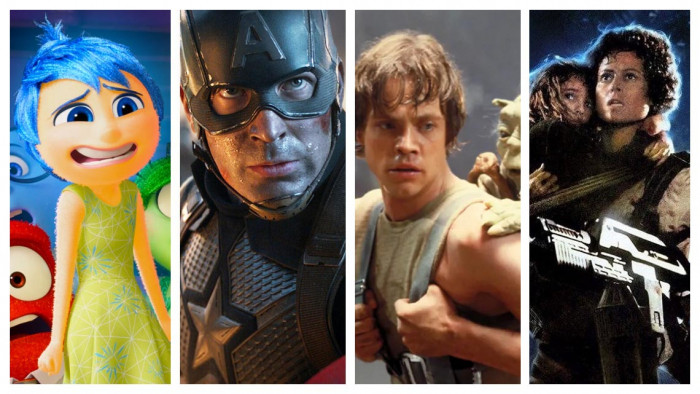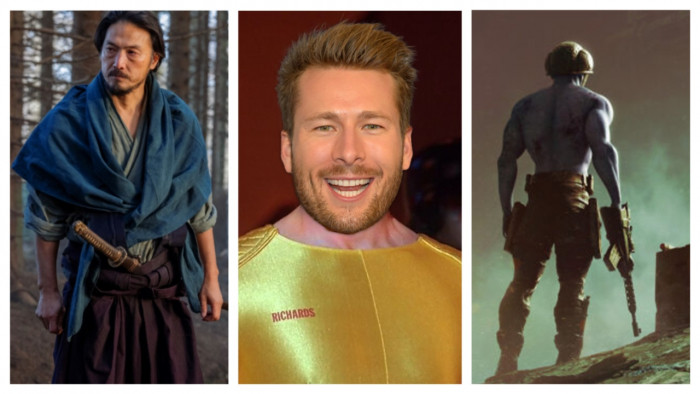Interviewed: Sir Michael Caine on being Britain's most loved and impersonated actor
Interviewed: Sir Michael Caine on being Britain's most loved and impersonated actor


As part of our 'Greatest'-themed 400th issue ShortList’s Andrew Dickens meets the nation's most loved actor...
In Rotherhithe, London, there is a blue plaque commemorating Sir Michael Caine’s birthplace. Not unusual, you might think, except for one thing: technically, he shouldn’t have one.
“On the plaque it says, ‘Voted for by the people,’” he tells me. “Because normally you only get a blue plaque if you’re dead. That was an incredible thing to me.”
It’s no great surprise; Caine is without doubt the UK’s most loved, most honoured and most impersonated actor. He’s also its greatest, hence his starring role on our cover. His CV trumps everyone: Alfie, The Ipcress File, The Italian Job, Get Carter, Zulu, The Man Who Would Be King, Hannah And Her Sisters, The Cider House Rules, The Dark Knight… No, let’s stop that. There’s not enough space.
It’s not just the films that make him great. His understated style (people will always say of Caine that it’s “in the eyes”), with its underlying warmth – a warmth that glows from the man himself, sitting on a sofa in his Chelsea flat – is a distillation of how the British like to see themselves. And his underdog story – the working-class London boy who became a star against the odds – is the story we most love.
Caine, 82, considers himself ‘retired’, but you wouldn’t know it. He still churns out two or three films a year and his next, Paolo Sorrentino’s Youth – in which he stars as an ageing composer, alongside Harvey Keitel, Paul Dano, Rachel Weisz and Jane Fonda – has fired up rumours of a seventh (yes, seventh) Oscar nomination, which would continue his record of a nomination every decade since the Sixties. Not that he’s one to dwell on such things.
I’m not a particularly religious man, but I believe in God and I thank him every day, because if you’d had my life, you’d have to believe in something.
Youth involves a lot of reflection. Are you someone who tends to reflect?
No. I’m always planning ahead. I’ve got plans for everything. You know, you’d think I’m going to live to 150. I always say to my kids, “Don’t look backwards, you’ll fall over.” [Laughs]
Do you have a particular affection for any of the characters that you’ve played?
Yeah, there’ve been a lot of them.
I have a particular affection for Harry Palmer. Harry was the most like me person I have ever played, I think. His attitude towards authority and all that was so me. In the Army I was called a communist because I was so anti-officer [laughs].
He’s also one of the few characters that you’ve gone back to.
Yeah, I’ve played him four times. I would have liked to have done Alfie as an old man with a daughter, and him going after the young Alfies coming after her. I had two daughters, so I was the complete opposite of Alfie – any guy who was an asshole, I’d be like, “Get out.”
Have you had moments you’ve been particularly proud of?
I’m particularly proud of Youth, because it’s the farthest away from me that I have ever played. I had this whole era when I was a movie star and got the girl. Then I became a movie actor, where I didn’t get the girl, I got the part. But now I look for the most difficult. Youth, to me, is one of the best things I ever did, because you cannot see me, you only see the person, you cannot see the acting. Youth is probably the performance I’m happiest with. That I ever did.
You must love your job.
That’s the whole thing, you see. I was an amateur actor. And amateur, obviously, comes from the French for love. I did it for nothing. But I never tell them I would do it for nothing now [laughs] – I only do it for a great deal of money. It wasn’t just love. I was in a youth club and they had an amateur dramatics society. They couldn’t get any of the boys to join it because they thought it was sissy.
I was in the basketball team, but there was a glass door on the amateur dramatics society and all the prettiest girls were in there. And I got to about 14 years old and I thought, “What the hell am I doing with those blokes?” [Laughs] So I joined the amateur dramatics society in the hope of getting a scene where I get to kiss a girl.
Look where it got you.
What with the girls and everything, then movies and money, I went, “Bloody hell, this is the thing for me.” I tell you something, I’m not a particularly religious man, but I believe in God and I thank him every day, because if you’d had my life, you’d have to believe in something. It couldn’t happen, it couldn’t happen to anybody, and it did.

Alfie was your big break – how did that come about?
Alfie was in the theatre. I even auditioned for it and I never got it. What happened with the film is, no one would do it. I was living with Terence Stamp at the time, we shared a flat. He’d done it on Broadway and it didn’t go down very well, so he didn’t want to know about it. Tony Newley didn’t want to know about it. Larry Harvey, who was a friend of mine, he turned it down. They came to me out of desperation. And it worked.
Rather well – that was your first Oscar nomination. And now you have this incredible record…
Every decade. Yeah. I won supporting for Hannah And Her Sisters and The Cider House Rules. I was nominated four times in the leading role [Alfie, Sleuth, Educating Rita, The Quiet American], but I never won that.
Maybe this time?
Well, you’ve got to get nominated first.
It shows a huge level of consistency, which is rare. Why do you think that is?
I always remember someone saying about the movies, “The script, the script, the script.” That’s the most important thing in the movies. I’ve always taken parts that stretched me. I’ve played a university professor in Educating Rita, a Times reporter in The Quiet American. So I always try to get farther and farther from the natural character of me.
I can’t work with bad actors, I can only work with good ones.
Were there periods when you felt like you were having a dip?
Oh yeah. I was 62, 63 and one day I got a script and I read it and I sent it back to the producer with a letter saying the part was too small. He sent me a letter back saying, “I didn’t want you to read the lover, I wanted you to read the father.” And I went, “Oops.” That was a turning point for me. I suddenly realised getting the girl was all over. I gave up and I went to live in Miami. I was having loads of fun, and then Jack Nicholson got a script and said, “Why don’t you do this movie [Blood And Wine] with me?” So I started off again. Then I did Little Voice and a whole series of movies I really enjoyed. I won Academy Awards, Baftas and Golden Globes all over the place. Little Voice got me going again.
Do you think you’re better than ever?
Oh yeah, you get better as you go along. You get more confidence in yourself and you learn. You learn all the time.
What are the most important lessons you’ve picked up?
If you’re doing a comedy and the crew laughs, it’s not funny [laughs]. I did Dirty Rotten Scoundrels with Steve Martin. The crew never laughed once at anything. It’s the funniest film I ever made.

There’s a line in Youth where Harvey Keitel says of Jane Fonda’s ageing movie star, “Stealing was her education.” Is there anyone that you’ve nicked stuff from?
Yeah. Marlon Brando. The way he uses his eyes. I can give you an instance of what I mean. When I did Zulu, I played a British Army officer, with these pith helmets that come down right over your eyes. The cameraman said to me, “Push it back a bit, I can’t see your eyes.” If you push your helmet back, you look like you’re p*ssed and I wanted to look stern. I remembered Marlon and I said to him, “You’ll see my eyes when I want you to.” Brando always would be down here mumbling, and suddenly the big line would come and he’d be looking at you.
So it’s an impact thing?
Yeah. It’s body language. For instance, the weaker people are, the faster they talk, because no one listens. The stronger and more powerful they are, the slower they talk, because everyone listens. My start on the characterisation is the haircut. If you get the hair and the costume right – you put that costume on long before you start the movie – you look in the mirror and you go, “There he is, I know exactly who he is.”
Antony Hopkins is the greatest impressionist in the world. He is great. But the surprising one for me was Tom Hanks
Are you a bit of a perfectionist?
Yeah. I can’t work with bad actors, I can only work with good ones.
Does it wind you up?
What happens is, if someone says a line wrong, I’m looking at him and the director says, “Michael, it’s your line,” and I go, “Oh sh*t, I forgot my line.” Because I got so interested in what he was doing, and how bad he was, I forgot what I was supposed to do. It happened a couple of times. I thought, I’ve got to stop that. But you saw Youth. Look at the performances in there of the other actors, not me, them. Every single one of them is fabulous. Every single one is perfect.
Even Diego Maradona?
Even Diego. Isn’t Diego Maradona wonderful?
Unbelievable. I was not expecting that.
No. There’s a lot of things in that film you wouldn’t expect.
What do you think the key is to going from good to great?
If someone’s sitting in the audience and saying to their friend, “Isn’t Michael Caine a good actor?” That’s a bad actor. They should be saying, “I wonder what Charlie’s going to do with Jane now?” When I grew up, all the stars were gods. They were more handsome than any of us, more beautiful than any of the girls, and we worshipped them. Actors of my time changed that. People said, “I bet if we met him he’d go have a drink with me.” I played you. I was just like you. When you see the opening scene of Alfie, this guy comes out and says, “Hello there, you’re my friend.”
Have you ever at any point felt underappreciated as an actor?
No, that didn’t bother me at all. You have to remember, I was a reparatory actor, I was nobody for years. I didn’t set out to be a star. I couldn’t be a star – a cockney guy from Elephant & Castle, son of a Billingsgate fishmonger. I have no sense of competition with any other actors – I love other actors and their performances. Love them. My competition is with myself. All I’ve ever done, right to this day, from my first part – I was a butler who came in and said, “Dinner is served” – is to try to be the best possible actor I could be. The fact that I became a star, as I said earlier, I just thank God for that. Nothing to do with me whatsoever.
If you’ve not felt underappreciated, have you ever felt over-impersonated?
[Laughs] A little bit! Do you know the best one I ever saw? Tony Hopkins is the greatest impressionist in the world. He is great. But the surprising one for me was Tom Hanks on Saturday Night Live.
Really?
Yeah. Google it. It’s great. The thing is, I don’t know Tom Hanks very well, but I met him at a party and he said, “You know why I became an actor, don’t you?”
I said, “No.” He said, “My dad took me to a drive-in theatre and I saw Zulu in the car. I thought, ‘That’s what I want to do, I want to become an actor.’” That’s why he ‘does’ me. I’m well-impersonated.
Was it Peter Sellers who started it off?
It was Peter. I’ll tell you where he started it, on his telephone. When we got the first answer machines, his was my voice and it just said, “This is Michael Caine speaking. Peter Sellers is not in at the moment. Not many people know that.” [Laughs]
Youth is at cinemas nationwide from 29 January
(PHOTOGRAPHY: ANDREW SHAYLOR)
Latest
Related Reviews and Shortlists


The 10 best war movies of the 21st century








